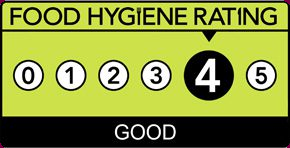Privacy and Cookie Policy
We take your privacy very seriously and will only collect and use information which is personal to you where it is necessary and lawful to do so.
Our Privacy & Cookie Policy contains important information regarding which personal details we collect; what we do with that information; who we may share the information with and why; and most importantly, your choices and rights relating to the personal information we hold.
We are the data controller and will process your personal data in accordance with the Data Protection Act 1998 as amended or replaced by the General Data Protection Regulation 2016 and any national laws which relate to the processing of personal data (“data protection legislation”).
The cookie policy sets out how we use and protect any information that you give us when you use this website. We are committed to ensuring that yourprivacy is protected. Should we ask you to provide certain information by which you can be identified when using this website, then you can be assured that it will only be used in accordance with this privacy statement. We may change this policy from time to time by updating this page. You should check this page from time to time to ensure that you are happy with any changes.
The DPA & GDPR May 2018
We and this website complies to the DPA (Data Protection Act 1998) and has taken measures to comply with the GDPR (General Data Protection Regulation) which comes into effect from May 2018. We will update this policy accordingly after the completion of the UK’s exit from the European Union.
Use of Cookies
This website uses cookies to better the users experience while visiting the website. As required by legislation, where applicable this website uses a cookie control system, allowing the user to give explicit permission or to deny the use of/saving of cookies on their computer/device.
Below is a list of third-party cookies we use:
Essential third-party cookies:
- WordPress: WordPress is used to log in, save settings, make any changes to the website, and keep a consistent experience from page to page.
- WooCommerce: WooCommerce is an open-source e-commerce plugin built on WordPress. Using this allows the user to buy and shop online. It is primarily used by small to large-sized online merchants using WordPress.
- PayPal: PayPal is an online payment system used to allow users to make safe and secure online payments between parties.
- Stripe: Stripe is used to allow users to make safe and secure online payments between parties.
- Google Analytics: Google Analytics is used to track website performance and collect visitor insight.
- Hotjar: Hotjar gives heatmaps and records anonymized user analytics data to help improve the experience of the website.
Non-essential third-party marketing cookies:
- Facebook: Facebook is a social media platform that retargets adverts while on other platforms. This also is the same for Instagram and WhatsApp as these platforms are both owned by Facebook.
- Twitter: Twitter is a social media platform and microblogging software that retargets adverts while on other platforms.
- LinkedIn: LinkedIn is a platform for professional networking and career development that retargets adverts while on other platforms.
- Bing: Bing is a web search engine owned and operated by Microsoft, which may be being used to support and display this website if you are using this search engine.
What are cookies?
Cookies are small files saved to the user’s computer hard drive that track, save, and store information about the user’s interactions and usage of the website. This allows the website, through its server, to provide the users with a tailored experience within this website. Users are advised that if they wish to deny the use and saving of cookies from this website on to their computers hard drive, they should take necessary steps within their web browsers security settings to block all cookies from this website and its external serving vendors or use the cookie control system if available upon their first visit.
What we collect
We may collect the following information:
- name
- contact information including email address
- demographic information such as postcode, preferences, and interests
- other information relevant to customer surveys and/or offers
What we do with the information we gather
We require this information to understand your needs and provide you with a better service, and for the following reasons:
- Internal record keeping.
- To improve our products and services.
- We may periodically send promotional emails about new products, special offers, or other information which we think you may find interesting using the email address which you have provided.
- From time to time, we may also use your information to contact you for market research purposes. We may contact you by email, phone, fax, or mail. We may use the information to customize the website according to your interests.
Security
We are committed to ensuring that your information is secure. To prevent unauthorized access or disclosure, we have put in place suitable physical, electronic, and managerial procedures to safeguard and secure the information we collect online.
How we use cookies
We use traffic log cookies to identify which pages are being used. This helps us analyse data about web page traffic and improve our website in order to tailor it to customer needs. We only use this information for statistical analysis purposes and then the data is removed from the system.
Overall, cookies help us provide you with a better website, by enabling us to monitor which pages you find useful and which you do not. A cookie in no way gives us access to your computer or any information about you, other than the data you choose to share with us. You can choose to accept or decline cookies. Most web browsers automatically accept cookies, but you can usually modify your browser setting to decline cookies if you prefer. This may prevent you from taking full advantage of the website.
Adverts and Sponsored Links
This website may contain sponsored links and adverts. These will typically be served through our advertising partners, to whom may have detailed privacy policies relating directly to the adverts they serve.
Clicking on any such adverts will send you to the advertisers’ website through a referral program which may use cookies and will track the number of referrals sent from this website. This may include the use of cookies which may in turn be saved on your computer’s hard drive. Users should therefore note they click on sponsored external links at their own risk and we cannot be held liable for any damages or implications caused by visiting any external links mentioned.
Downloads & Media Files
Any downloadable documents, files or media made available on this website are provided to users at their own risk. While all precautions have been undertaken to ensure only genuine downloads are available, users are advised to verify their authenticity using third-party anti-virus software or similar applications.
We accept no responsibility for third-party downloads and downloads provided by external third-party websites and advise users to verify their authenticity using third-party anti-virus software or similar applications.
Contact & Communication With Us
Users contacting us through this website do so at their own discretion and provide any such personal details requested at their own risk. Your personal information is kept private and stored securely until a time it is no longer required or has no use.
Where we have clearly stated and made you aware of the fact, and where you have given your express permission, we may use your details to send you products/services information through a mailing list system. This is done in accordance with the regulations named in ‘The policy’ above.
External Website Links & Third Parties
Although we only look to include quality, safe and relevant external links, users are advised to adopt a policy of caution before clicking any external web links mentioned throughout this website. (External links are clickable text / banner / image links to other websites.)
Shortened URL’s; URL shortening is a technique used on the web to shorten URL’s (Uniform Resource Locators) to something substantially shorter. This technique is especially used in social media and looks similar to this (example: http://bit.ly/zyVUBo). Users should take caution before clicking on shortened URL links and verify their authenticity before proceeding.
We cannot guarantee or verify the contents of any externally linked website despite our best efforts. Users should therefore note they click on external links at their own risk and we cannot be held liable for any damages or implications caused by visiting any external links mentioned.
Controlling your personal information
Under GDPR, you’re entitled to:
- Know how your data is used
- What information has been collected
- Make a request to have mistakes corrected
- Have your data deleted from our records
- Refuse data processing (for example, for use in our promotional efforts)
If you would like to carry out any of the above, please contact us by email or phone, or writing:
Phone: 01473 784999
Email: doorstep@foulgersdairy.co.uk
Address: Unit 6 Tuddenham Hall,
Tuddenham, Ipswich,
Suffolk, IP6 9DD.
We will promptly explain how data is used, disclose what has been collected, change any mistakes, or delete your data as requested. We will not sell, distribute, or lease your personal information to third parties unless we have your permission or are required by law to do so. We may use your personal information to send you promotional information about thirdparties which we think you may find interesting if you tell us that you wish this to happen.
Current Cookie Settings
Please find below your current settings:

